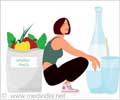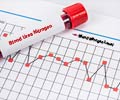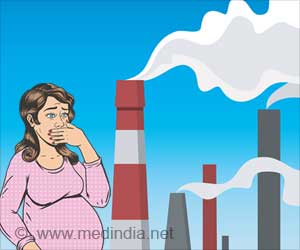The way in which our food choices affect pollutant nitrogen emissions, climate change and land-use across Europe has been quantified in a new report.

It shows how much cutting down on meat and dairy in our diets would reduce nitrogen air and water pollution, and greenhouse gas emissions, while freeing up large areas of farmland for other purposes such as food export or bioenergy. It also considers the health benefits of reduced meat consumption.
Report lead author Henk Westhoek, program manager for Agriculture and Food at PBL (the Netherlands Environmental Assessment Agency) said, "The report shows that the nitrogen footprint of meat and dairy is considerably higher than that from plant-based products.
If all people within the EU would halve their meat and dairy consumption, this would reduce greenhouse gas emissions from agriculture by 25 to 40 per cent, and nitrogen emissions by 40 per cent. The EU could become a major exporter of food products, instead of a major importer of for example soy beans."
The work has been conducted by the 'Task Force on Reactive Nitrogen' of the United Nations Economic Commission for Europe (UNECE). In 2011 the Task Force produced the first 'European Nitrogen Assessment' (ENA) which showed that better nitrogen management will help reduce air, water and soil pollution, greenhouse gas emissions, simultaneously reducing threats to human health, biodiversity and food security.
Source-ANI















